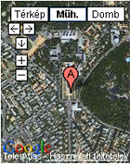|
| |||||
|
HE Cooperations int the Border Region 'Partium' (Felsőoktatási együttműködések a Partium térségben) Kozma,T Pusztai, G
In our paper we summarized our interregional research findings regarding to the interregional institutional relationships from the border region of three CEE countries (Hungary, Romania and Ukraine). In first step we surveyed international links between different universities and colleges. In our analysis institutional networks were compared according to their composition, characteristics, and quantity of relationships. We revealed, that despite of this region is characterized by relatively big proportion of young people, recent educational statistics show decline of university attendance rates. On the other hand all institutes have an aspiration to be member of the European Higher Educational Area. The investigated HE institutions are challenged to take into consideration that the cross border and interregional institutional networks can be interpreted as competitive and/or cooperative frame.
Education and Social Capital (Oktatás és társadalmi tőke) Pusztai, G
The aim of this paper is to reveal the interpretational capacity of the social capital theory in connection with the differences between the schools' achievements. We focus on the structures and contents of schools` relationships organized in family and in school. We compared several indicators of social relationships and networks on individual and community level to find the most able variable to modify reproductive determinism. We found out, that the powerful presence of special attention on behalf of the teacher, schools' relationship networks developing predominantly along religious communities and schools' personal religious practice support better academic achievement.
The Effect of Social Capital on Educational Achievement in the Border Region (Társadalmi tőkeforrások egy határmenti régióban) Pusztai, G
The present study is based on data gathered in the border regions of three Central Eastern European countries, namely Hungary, Romania and Ukraine. Since 1920 in Romania and Ukraine there have been compact Hungarian national minorities along the Hungarian borders. This border region can be characterized by traditional multiconfessionalism, significant protestant (Reformed church) presence and confessional tolerance. We surveyed students of secondary schools in Hungarian speaking institutions. We conducted a survey in denominational and non-denominational secondary schools in the border region in 2006. Investigating the reasons for the differences in achievement between denominational and non-denominational students, we revealed that sector-specific differences do not originate from the advantages or disadvantages of social background. As we had earlier detected a strong influence of the relationships organized along religious practice on denominational students' school achievements, we went on to examine whether it was religiosity or relationship structures that exerted such a powerful influence.
|
| |||
|
TERD 2009 | |||||
